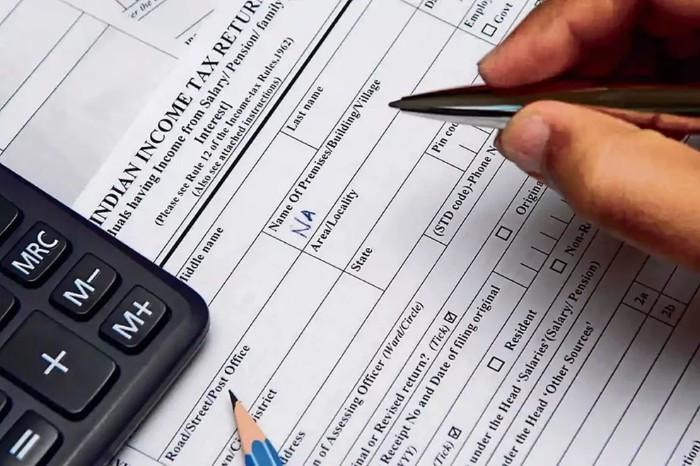What Is The Minimum Income to File Taxes
Nov 25, 2023 By Triston Martin
Tax season can be a daunting time of year for many people, and one of the first questions on everyone’s mind is usually, “What is the minimum income to file taxes?” This question is especially important for those who are self-employed or have multiple jobs.
The rules and regulations may vary depending on your situation but understanding them (and how they apply to you) will help make filing less complicated.
In this blog post, we will explain exactly what determines whether or not you must file taxes yearly, including income thresholds and special circumstances that might impact your filing status.
We'll also guide you through different tax credits and deductions so that you can maximize your potential savings! Read on to learn all about what it takes to stay compliant with Uncle Sam's requirements when it comes to taxes.
An Overview of Tax Filing Requirements for Different Income Levels
When it comes to filing taxes, some have different requirements. You may have different tax filing rules depending on your yearly income. One key question is, “What is the minimum income to file taxes?” This article will provide an overview of tax filing requirements for different income levels.
Most people's minimum income to file taxes is $12,200 for individuals and $24,400 for married couples filing jointly. You do not have to pay federal income tax if you make less than this amount in a year.
However, even if your income is below this amount, you may still need to file a tax return if any of the following apply:
- You had federal income tax withheld from your wages, or you made estimated payments
- You qualify for certain credits or deductions
- You owe Social Security and Medicare taxes on self-employment income
- You are in business as a sole proprietor
- You are a partner in a partnership or a member of an LLC
Your filing requirements may differ if you make more than the minimum income to file taxes. For instance, if you make over $200,000 in a year (individuals) or $400,000 (married couples filing jointly), you must pay an additional 3.8% Medicare tax on the income over these amounts. Those with higher incomes may be subject to different tax rules and deductions than those who make less money.
What Is the Standard Deduction and How Can It Help You Save Money on Taxes?

The standard deduction is a set amount of money that reduces the taxes on the incomes of individuals who qualify. It can help reduce the amount you owe in taxes, potentially leading to a larger tax refund if you've paid too much throughout the year.
The standard deduction for the 2019 tax year is $12,200 for single taxpayers and $24,400 for married couples filing jointly. Other deductions, such as those based on charitable donations, may also be applicable if you meet certain criteria.
Knowing the minimum income to file taxes and understanding how the standard deduction works are key parts of the tax process. It's important to familiarize yourself with these concepts early on to get the most out of your taxes. Consult a qualified accountant or tax specialist if you have any questions about how this process works and what deductions may apply to you.
The Internal Revenue Service (IRS) establishes the required minimum income for tax filing, often depending on your filing status, age, and other variables. In general, single taxpayers who made more than $12,200 were required to file taxes, while married couples filing jointly were required to do so if their combined income exceeded $24,400. This amount can be further reduced if you qualify for the Earned Income Tax Credit (EITC) or claim dependents. The IRS or a licensed tax professional should always be consulted before filing taxes because the required minimum income varies yearly.
You can save money on taxes using the standard deduction and other applicable deductions. Remember that you must know the minimum income to file taxes to ensure you pay the right amount. Contact a professional for any questions you may have about this process so that you can make sure your taxes are handled correctly.
The Difference Between Taxable and Non-Taxable Income
One of the most important things to understand when determining if you need to file taxes is the difference between taxable and non-taxable income. Taxable income includes wages, salaries, tips, bonuses, commissions, self-employment earnings, alimony payments, and other compensation for services rendered or goods sold. Non-taxable income includes scholarships, grants, welfare benefits, social security benefits, and other government assistance.
How to Determine If You Need to File Taxes

The first step in determining if you need to file taxes is to determine what your total taxable income is. Add the total amount of money you earned through taxable sources to do this. If your total income exceeds the minimum income requirement, you will need to file taxes.
Generally speaking, if you are under 65 years old and not a dependent, then the minimum income requirement for filing taxes is $12,400 for single filers and $24,800 for married couples filing jointly.
Once you have determined your total income and compared it to the minimum income requirement, the next step is determining which tax form you must use when filing. There are several different forms available depending on your filing situation.
Even if you do not meet the minimum income requirement for filing taxes, it may still benefit you to file. This is because filing taxes can result in a tax refund or credits that can be used toward future tax payments.
FAQs
What is the lowest income to not file taxes?
The lowest income to not file taxes is $12,400 for single filers and $24,800 for married couples filing jointly. However, you may still benefit from filing taxes even if your income exceeds the minimum requirement.
Do I have to pay taxes on non-taxable income?
No, non-taxable income is not subject to taxes. Examples of non-taxable income include welfare benefits, social security benefits, scholarships, and grants.
What happens if I don't meet the minimum income requirement for filing taxes?
You must meet the minimum income requirement for filing taxes to be able to file a tax return. However, you may still benefit from filing taxes as it can result in a tax refund or credits for future tax payments.
Conclusion
In conclusion, understanding the minimum income to file taxes is crucial to complying with federal laws. Tax filing should be taken seriously as it can lead to serious complications and financial penalties if done correctly. Therefore, always know your filing status and stay up-to-date about information that could affect your potential tax savings, like how different credits and deductions work.
-
 Investment May 10, 2024
Investment May 10, 2024How Kansas City Life Insurance Stands Out: A Comprehensive Review
Explore the key benefits of Kansas City Life Insurance, from its exceptional customer service to its stable financial standing and diverse product portfolio.
-
 Know-how May 16, 2024
Know-how May 16, 2024How Much Is Insurance for a Sole Proprietorship?
Industry, coverage needs, and geographic location influence the price of SC small business insurance for sole proprietorships, usually between $500–$3,000.
-
 Mortgages May 20, 2024
Mortgages May 20, 2024Introduction to Business Models
Learn about business models, types, and real-world examples. Gain an understanding of their significance in finance.
-
 Banking Feb 22, 2024
Banking Feb 22, 2024Chase vs Citibank Faceoff: Tailoring Your Banking to Fit Your Needs
Take a look at our in-depth comparison of Chase and Citibank. Learn about Chase Bank and Citibank hours and find the perfect fit for your banking needs.
